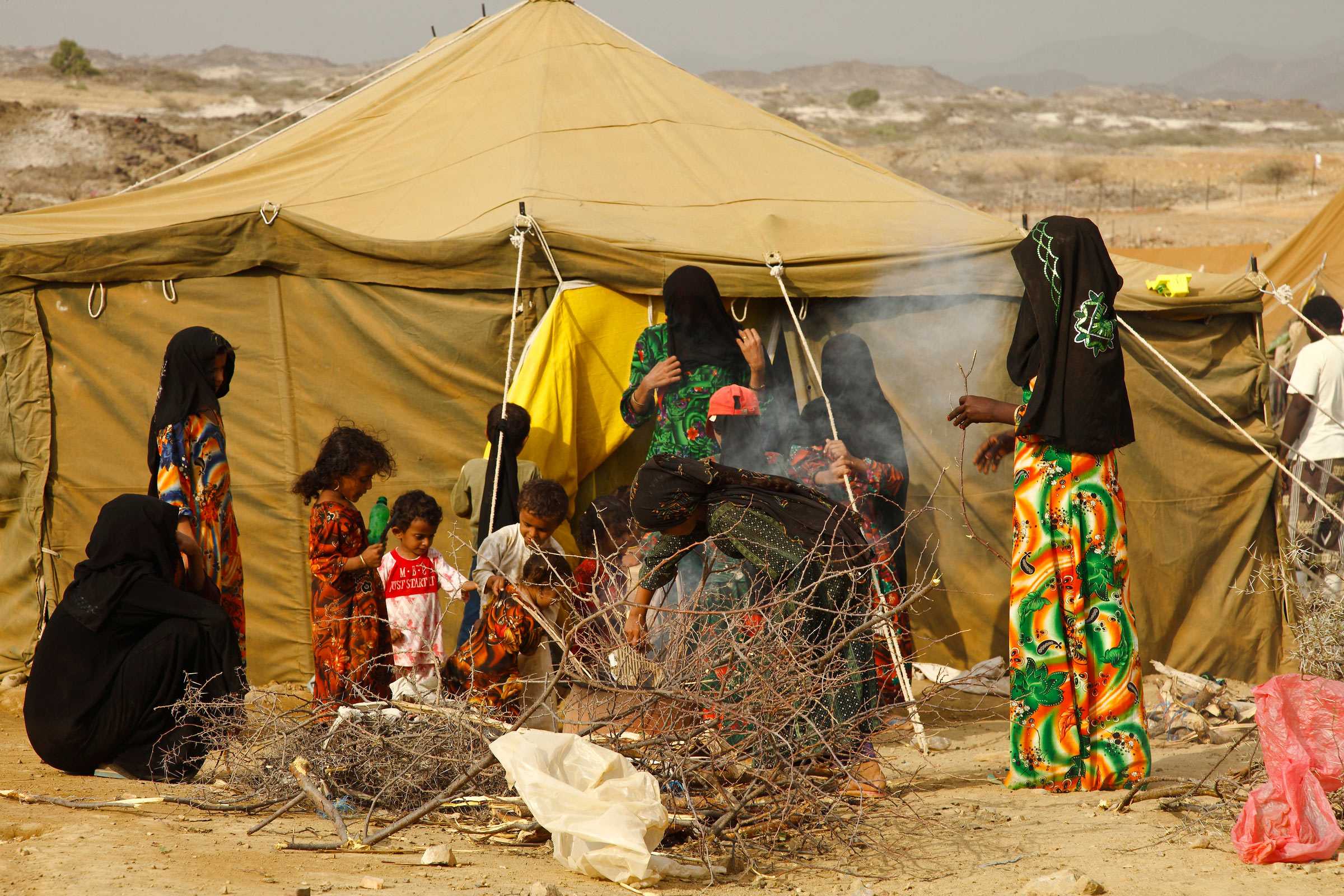‘A War Forgotten’: End the Yemen hypocrisy
February 8, 2017
Turn on any news station that has a shred of reputation and one will undoubtedly find a treasure trove of information on the now five year long Syrian civil war. From indiscriminate barrel bombings from Syrian warplanes, to the valorous actions of the White Helmets, to the intervention of the mighty Russian Federation, and to the ceaseless cycle of broken ceasefires, the war has been packed with events for news outlets to spin tales about.
Yet to the south of Syria lies a war that is just as filled with brutality yet simultaneously brimming with humanity. This war, which has been waged in Yemen since around 2014, has largely escaped the waning attention span of the Western media. Both wars have stark similarities and differences, but so far only one has been deemed worthy of any significant coverage. I believe this is wrong, and that we must pay as much attention to the war in Yemen as we do the war in Syria.
The Syrian civil war is well known and (to an extent) well understood by the public, so I won’t spend much time on it. But the Yemeni civil war, on the other hand, needs a good introduction. The war began in 2014 when, after much wrangling, politicians in the country announced a new constitution that would divide the nation into six different regions. An ethnic group known as the Houthis rejected this plan, besieging and annexing the Yemeni capital in the same year.
The president of the country escaped to Saudi Arabia, leaving behind a political vacuum which the likes of Daesh (ISIS), the Houthis, and Al-Qaeda have filled. The Saudis spearheaded an attempt, along with other Arab nations, to retake the country and place it back into the hands of the original president, an attempt that is still ongoing.
The country has had many ethnic and political divisions, namely between the country’s north and south. Reuniting after the collapse of the Soviet Union, the southern half soon split off from the nation (a succession effort that was soon crushed). Al-Qaeda has previously been a major threat to Yemen’s stability-best exemplified by the USS Cole bombing-and the Arab Spring had lit fires of dissent that (like in Syria) have raged out of control.

Mazrak Refugee Camp in Yemen.
Both nations are having everything — from their intricate cultures, to their precious infrastructure — ripped apart by violent actors from home and from abroad with no end in sight. Yet while the tears of hopeless Syrian children have filled the nightly news and Facebook with countless sympathetic sighs and likes, the dying screams of Yemeni youth have hardly filled a sound bite on our social media feeds.
I believe this neglect of the civil war in Yemen is for two reasons, neither of which are very pleasant. The first is that it is America’s allies, not Russia’s, who are committing war crimes: thus, unfavorable media coverage is avoided. Saudi warplanes indiscriminately bomb Yemeni population centers daily, dropping “cluster bombs”(bombs that release little bomblets, which in turn release metal spheres at a high velocity) wherever they please. Detonated bomblets rain down from the sky and slice through their targets — targets like Essa al-Furasi, a fifteen year old boy who was killed by shrapnel while attending his mosque. Undetonated bomblets lie in wait like landmines, waiting to be triggered by Yemenis like 11 year old Walid (note: these names have been changed for privacy reasons), who lost three fingers and suffered a broken jawbone to an undetonated ball-shaped bomblet. His eight year old brother was slain by the same explosion.
These bombs, banned by an international treaty signed by over 100 countries (of which the US is not a member), are given to the Saudis by the United States. Along with providing intelligence, training, fuel and even billions of dollars in weaponry to the Saudi theocracy, the US has provided public relations screening to protect its ally from her sins.
The second reason for our ignoring of this war is directly linked to the first; because we have political and financial interests at stake in Yemen but not in Syria, Russian crimes in Syria have been used to distract (most) of the press from Saudi crimes in Yemen.
The UN estimates that out of 27.4 million Yemenis, 7 million are “food insecure” (read: starving), with 1 in 5 “severely food insecure” (read: almost dead). The Saudi air and naval blockade has strangled international aid in the same way Syrian and Russian forces have disrupted aid in Syria. Our enemies continue to have the speck of dust pointed out in their eyes, while the plank in the eyes of our allies is left alone. It is high time we ceased this abhorrent hypocrisy.



Yemen Fights back • Feb 9, 2017 at 9:19 am
Thank you for taking about the Saudi war against Yemen. This is the first time I read an article about Saudi war against Yemen without the mention of of the false claim “Iran backed”. All other media when they talk about the war claim that it is “Iran backed”.
I wanted to correct some information:
1. The war started on March 2015 not in 2014
2. The Houthis are not like ISIS or Al-Qaeda. Actually Houthis are the only force that has history of defeating Al-Qaeda in Yemen in multiple times. This Saudi war made Al-Qaeda expand because Houthis couldn’t fight back Saudi and Al-Qaeda at the same time.
Follow us in twitter @YemenFightsBack